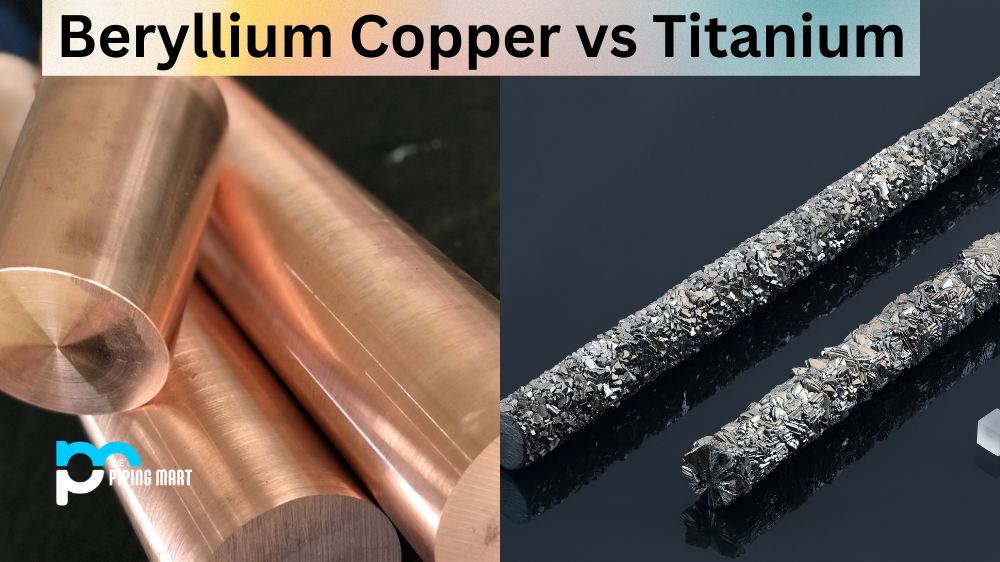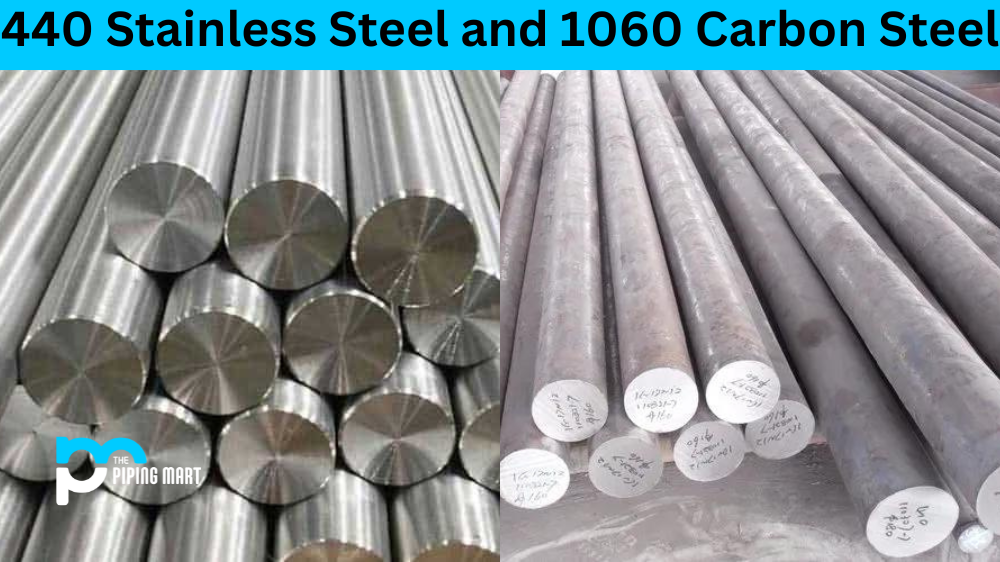When choosing the right material for your projects, you want to consider the options that will offer you the best performance, durability, and longevity. Beryllium copper and Titanium are some of the most popular options in the market, and each has unique features and advantages. In this blog post, we’ll look closer at beryllium copper and Titanium, where they excel, and which might be the better option for your projects.
What is Beryllium Copper?
Beryllium copper is a type of non-ferrous metal composed of copper alloyed with a small amount of beryllium. This material is known for its high conductivity, low thermal expansion, and high strength, making it ideal for electrical connectors, springs, and other high-performance components. Beryllium copper is also highly resistant to corrosion and abrasion, which makes it a popular choice in marine and industrial applications. This metal is also extremely lightweight, making it easier to work with and transport.
What is Titanium?
Titanium is a strong, lightweight, and corrosion-resistant metal often used in aerospace, engineering, and medical applications. Its high strength-to-weight ratio makes it ideal for components that need to be both durable and lightweight. Titanium is also biocompatible, which makes it suitable for medical implants, and it has a high resistance to heat and chemicals, which makes it useful in chemical and industrial processes.
Difference Between Beryllium Copper and Titanium
Cost
One major difference between beryllium copper and Titanium is their cost. Beryllium copper is typically more affordable than Titanium, which makes it a more accessible option for many projects. However, Titanium offers distinct advantages, making it worth the extra expense in certain applications. For instance, Titanium’s high strength and durability make it a great choice for components that withstand high stress or shock loads.
Machinability
Another major difference between these two materials is their machinability. Beryllium copper is a relatively easy material to machine, while Titanium is notoriously difficult to work with due to its hardness and heat resistance. Machining titanium requires specialized equipment and techniques, which can add to the overall cost of titanium components.
Advantages of Beryllium Copper
Beryllium copper’s advantages include its high strength, low weight, and corrosion resistance. Additionally, beryllium copper has a lower coefficient of thermal expansion than Titanium, meaning that it will not expand or contract as much when exposed to changes in temperature.
Advantages of Titanium
Titanium’s advantages include its high strength, low weight, and corrosion resistance. Additionally, Titanium has a very high melting point, which can be used in applications where exposure to high temperatures is a concern.
Disadvantages of Beryllium copper
Beryllium copper is a less expensive metal than Titanium, making it a more attractive option for some applications. Beryllium copper is also more corrosion-resistant than Titanium, making it a better choice for applications where the metal will be exposed to harsh environments. However, beryllium copper is less strong than Titanium, which is not well suited for applications with high strength. Additionally, beryllium copper is more difficult to work with than Titanium, making it less suitable for applications requiring precise tolerances.
Disadvantages of Titanium
Titanium is a much more expensive metal than beryllium copper. Titanium is much less malleable than beryllium copper, making it more difficult to work with.
Conclusion:
So, which one is better – beryllium copper or Titanium? The answer, of course, depends on your specific project needs. Beryllium copper is a cost-effective option with high conductivity, low thermal expansion, and corrosion resistance. It’s also lightweight and easy to machine. On the other hand, Titanium is a strong, lightweight, and corrosion-resistant metal ideal for components that must withstand high stress and shock loads. While it’s more expensive and harder to machine, Titanium’s unique properties make it worth the extra investment in certain projects. Choosing these two materials depends on your project requirements, budget, and expertise in working with these metal alloys.

Hey, I’m Krutik, a casual blogger expert in the metal industry. I am passionate about providing valuable information to my readers. With a background in engineering and construction, I like playing Cricket & watching Netflix shows in my free time. Thank you for visiting my blog, and I hope you find my information helpful!




